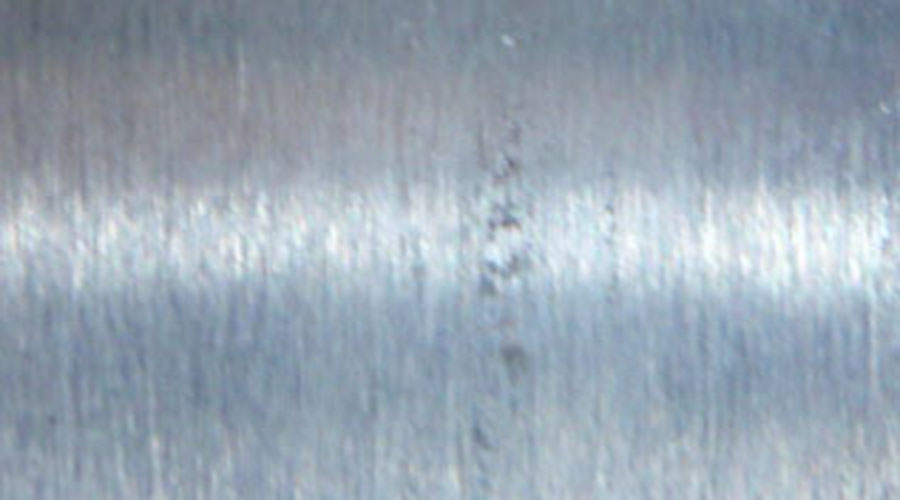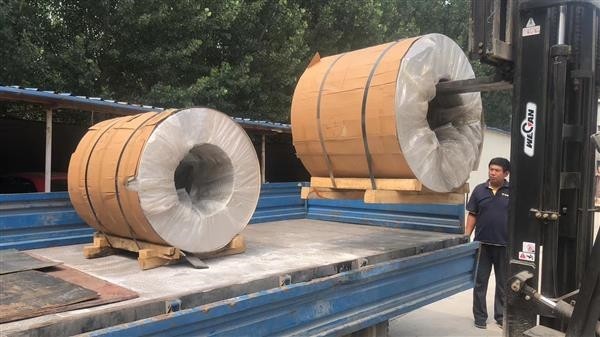Aluminum coils are essential materials widely used in construction, packaging, transportation, and other industries. Proper transportation of aluminum coils after production is crucial to maintain their quality and ensure they reach their destination safely. Improper transportation can lead to a range of severe consequences, impacting product quality and causing economic losses. Here are the main consequences of improper transportation of aluminum coils:
Surface Damage
Aluminum coils can suffer surface damage during transportation if not adequately protected. Factors such as friction and impact can cause scratches, dents, or gouges on the surface. These surface damages not only affect the appearance of the aluminum coils but can also lead to further issues during subsequent processing, ultimately reducing the quality of the final product.

Deformation
Although aluminum coils are relatively flexible, improper transportation without correct securing and support can result in them being subjected to external forces such as compression or bending, leading to deformation. Deformed aluminum coils are difficult to use in their intended applications, potentially resulting in lower quality products or even rendering them unusable.
Increased Internal Stress
Improper transportation can cause uneven external forces to act on the aluminum coils during handling, leading to increased internal stress within the material. This internal stress can compromise the performance of the aluminum coils, making them more prone to cracking or breaking during subsequent processing, which significantly affects the reliability and lifespan of the products.
Corrosion
If aluminum coils are not protected from moisture and rain during transportation, water stains or rust spots can form on the surface, leading to corrosion. Corrosion not only degrades the appearance of the aluminum coils but also affects their physical properties, resulting in issues such as discoloration and reduced strength during subsequent use.
Safety Hazards
Without proper safety measures during transportation, aluminum coils may slip, tip over, or fall, causing accidents. These incidents can damage the aluminum coils and pose significant risks to personnel and property, potentially resulting in injuries, fatalities, and substantial financial losses.
Preventive Measures
To avoid the adverse consequences mentioned above, the following measures should be taken during the transportation of aluminum coils:
1. Proper Packaging: Ensure aluminum coils are adequately packaged before transportation. Use protective materials to wrap the coils, preventing surface scratches and damage.
2. Secure Fastening: Firmly secure the aluminum coils on the transportation vehicle using brackets, straps, or other fastening tools to prevent movement and deformation during transit.
3. Moisture Protection: Apply moisture protection to the aluminum coils to prevent exposure to water vapor or rain during transportation. Use waterproof materials to wrap the coils and choose transportation vehicles with good sealing capabilities.
4. Appropriate Transportation Equipment: Select suitable transportation equipment based on the specifications and quantity of aluminum coils, ensuring stability and safety during transit.
5. Professional Handling: Use professional transportation and handling personnel to avoid damage caused by improper operations.

结论
Improper transportation of aluminum coils can lead to severe consequences, including surface damage, deformation, increased internal stress, corrosion, and safety hazards. To ensure aluminum coils remain intact during transportation, it is essential to use proper packaging, secure fastening, moisture protection, appropriate transportation equipment, and professional handling. By taking these precautions, the quality and reliability of the final aluminum coil products can be maintained.


